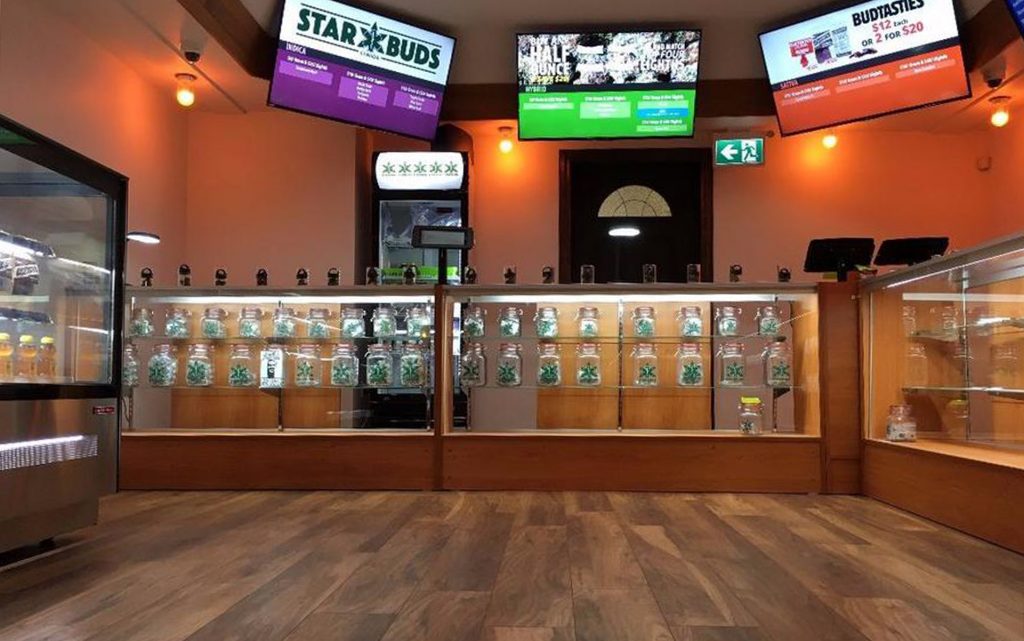For N.L. weed shops, the inspectors are coming

NLC will monitor licensed stores, but can challenge unlicensed shops.
Is there a shop in your neighbourhood currently selling weed?
Health Canada has not approved any storefront locations for over-the-counter medical cannabis sales in Newfoundland and Labrador. Recreational-use cannabis is not yet legal.
Multiple shops have set up with cannabis-related branding. In some cases, they promote informational services and referrals for medical marijuana users. In other cases, they have been identified by community members as dispensaries, intent on selling marijuana for recreational purposes (as opposed to specifically medical marijuana for prescriptions) prior to legalization.
Illegal activity is subject to police intervention.
But what could happen with dispensaries as new laws are passed at the federal and provincial levels? What are the options for dispensaries?
There has been a lot of talk of “grey area,” but the picture of impending cannabis regulation and enforcement is now clear for this province.
Cannabis legislation addressing retail has been tabled in the House of Assembly. The last, most significant piece of legislation is expected to pass before the end of the week. Should it pass, it will come into force after the Government of Canada passes its cannabis-related Bill C-45. That bill has been under Senate review and will then go back to the House of Commons.
Generally, July 1 is no longer talked about as the expected legalization date for recreational marijuana in Canada, but legalization and the power to enforce the new rules is still expected within the year.
The legislation tabled makes it clear the province, and specifically the Newfoundland and Labrador Liquor Corp. (NLC), will have the power to licence and regulate recreational cannabis shops here.
The NLC has started the work to identify the initial set of cannabis shops it will licence, and they will be subject to regulatory reviews, including spot checks by NLC inspectors.
“Responsibility for addressing the activities of other dispensaries that operate without a licence from the NLC would be with law enforcement (Royal Newfoundland Constabulary and RCMP),” an NLC representative stated Wednesday.
In the case of alcohol, the NLC enforces through inspectors where it can, but also informs the RNC and RCMP with suspicions and evidence of illegal activity. That relationship is expected to continue with cannabis.
At the same time, the NLC has left the door open to discussions with retailers in some enforcement cases.
“When we see a non-licensee breaking the law, depending on the nature of the violation, NLC inspectors will inform the individual or business of the violation and work with them to rectify the situation,” the NLC representative said.
Apart from the liquor corporation, owners of businesses trying to sell recreational-use marijuana need to be aware of municipal powers.
The City of St. John’s, for example, first follows its existing development regulations when handling both retail and production facilities, assuring production facilities locate only in industrial areas and retail only in commercial zones.
As part of the NLC approval processes, evidence has to be provided by the businesses to show they are setting up with approval, in the appropriate municipal zone, including a letter from the municipality to confirm as much.
And there is other municipal permitting.
The City of St. John’s would issue an occupancy permit when a new store is built, before a business of any kind can start operating. And when existing shops are changing hands, there is a “change of occupancy” permit, meant to ensure whatever business is now operating meets the zoning and building codes (including that the building includes any required physical amenities for its current use).
In response to questions from The Telegram on specific businesses, staff with the city referred to a collection of existing permits, but also said an investigation would be launched in one case, where there was no record found of an occupancy permit.
The municipality has the ability to work through permitting, and the ability to report activity suspected of running afoul of (when in place) provincial regulations, or the Criminal Code of Canada, to the NLC and police, respectively.
Ultimately, a spokeswoman for the city told The Telegram, “if sites are selling cannabis that are not one of the provincially approved sites, the province (NLC and RNC) will have to take action, likely in much the same way they would if an unapproved store was selling liquor.”
An RNC spokesman told The Telegram the police force would take action whenever there is evidence of illegal trafficking of marijuana and other cannabis products, but the force would also not speak about any investigations that might be ongoing.
420 Intel is Your Source for Marijuana News
420 Intel Canada is your leading news source for the Canadian cannabis industry. Get the latest updates on Canadian cannabis stocks and developments on how Canada continues to be a major player in the worldwide recreational and medical cannabis industry.
420 Intel Canada is the Canadian Industry news outlet that will keep you updated on how these Canadian developments in recreational and medical marijuana will impact the country and the world. Our commitment is to bring you the most important cannabis news stories from across Canada every day of the week.
Marijuana industry news is a constant endeavor with new developments each day. For marijuana news across the True North, 420 Intel Canada promises to bring you quality, Canadian, cannabis industry news.
You can get 420 Intel news delivered directly to your inbox by signing up for our daily marijuana news, ensuring you’re always kept up to date on the ever-changing cannabis industry. To stay even better informed about marijuana legalization news follow us on Twitter, Facebook and LinkedIn.




